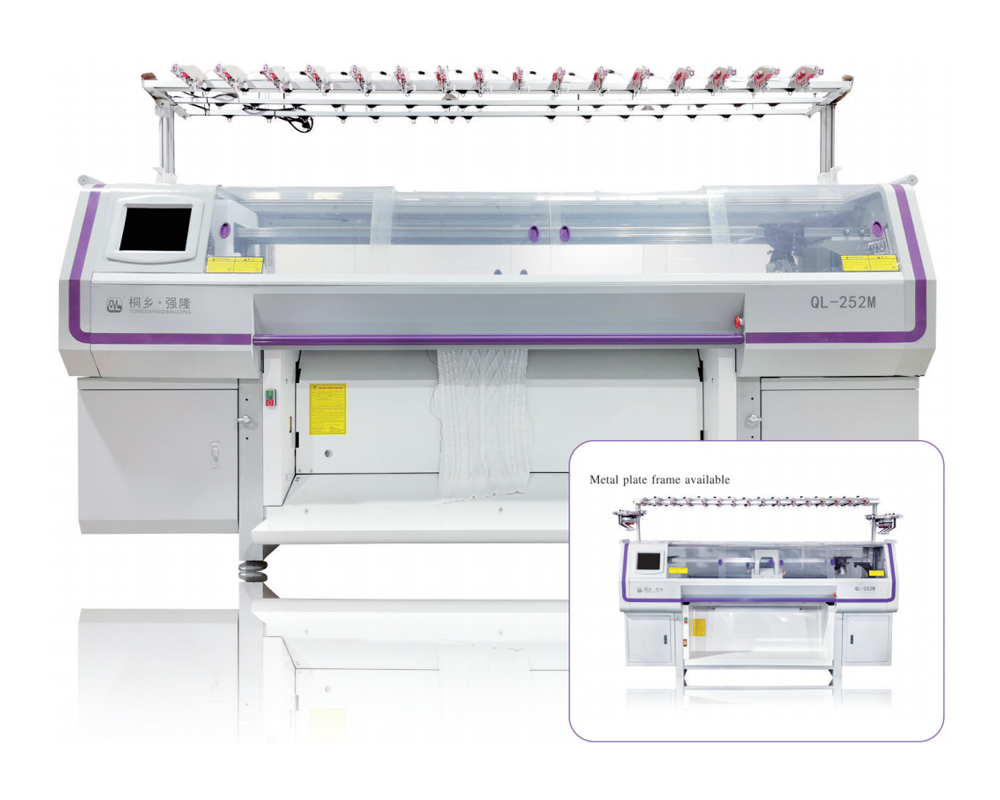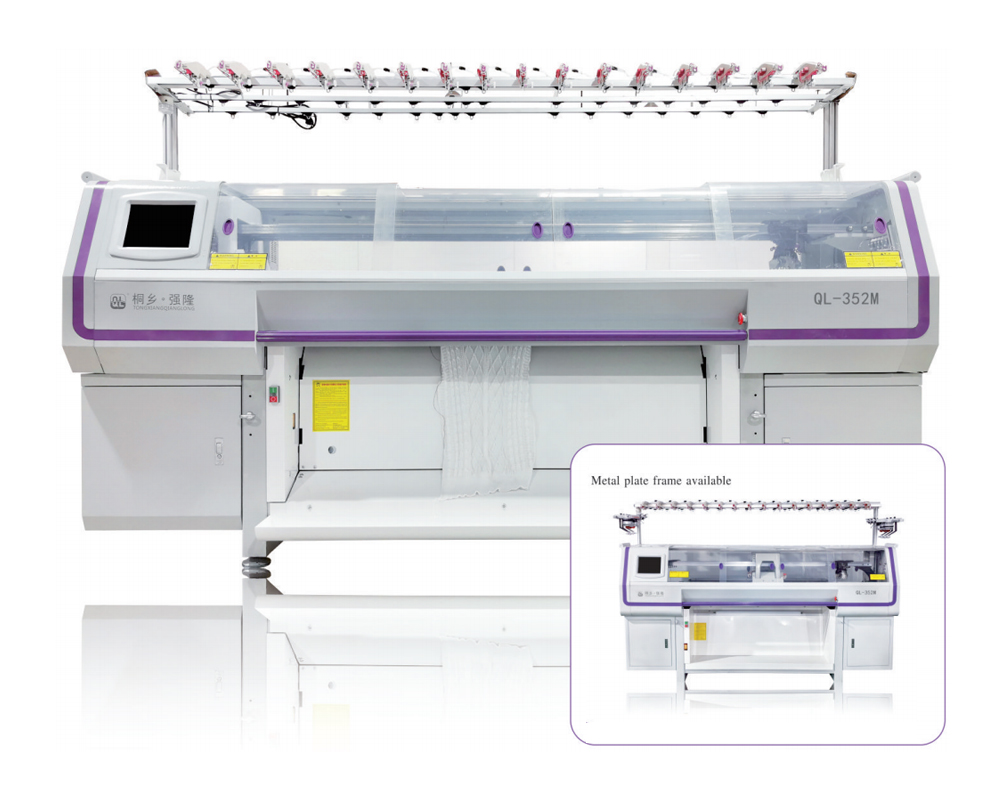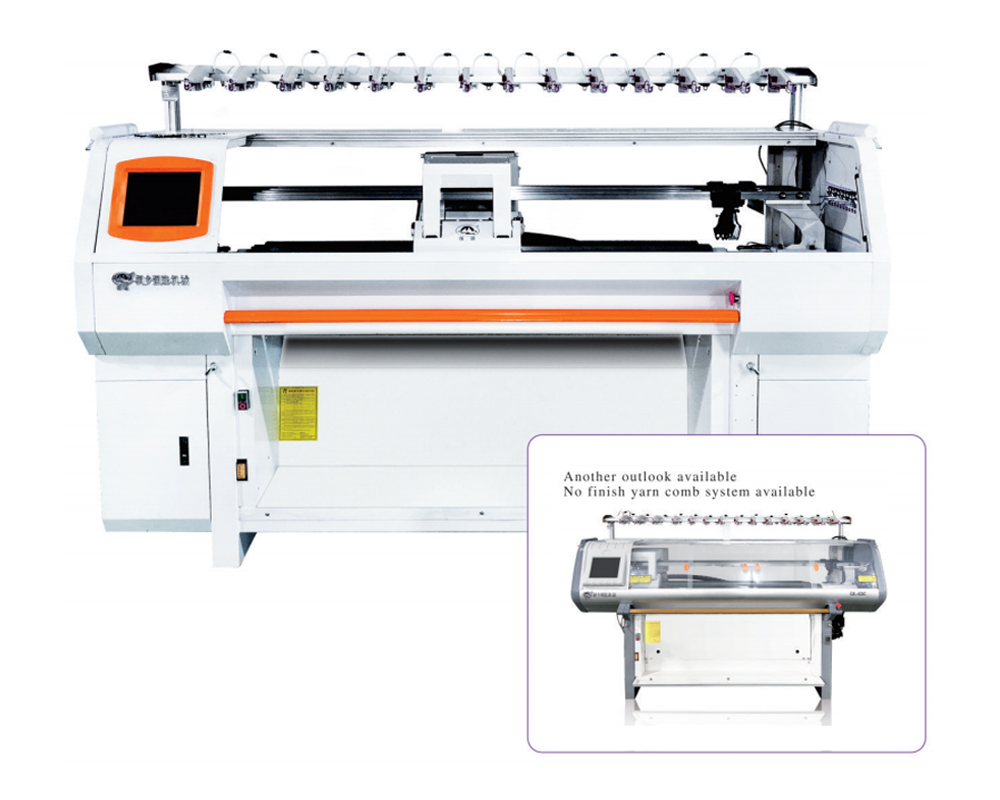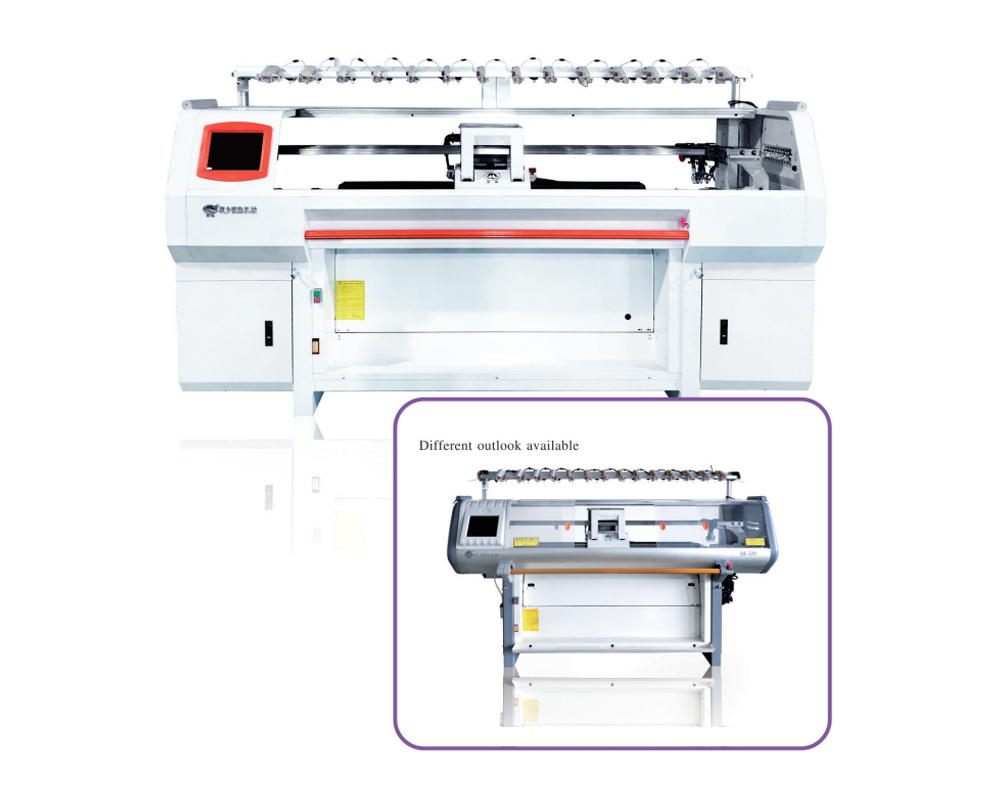Tongxiang Qianglong Machinery Co., Ltd. is high-tech China wholesale computerized flat knitting machine manufacturers, specialized in designing, developing, and manufacturing Knitting Machinery..
Knitting machines have revolutionized the textile and fashion industries by making it faster and more efficient to produce knitwear. Whether for hobbyists or large-scale manufacturers, understanding the different types of knitting machines is crucial for selecting the right tool for the job. These machines vary in terms of their functionality, complexity, and the type of fabric they produce.
Here’s an overview of the key types of knitting machines you should know about:
1. Flat Knitting Machines
Flat knitting machines create fabric in a flat, open form. They use a horizontal needle bed and are widely used in the production of sweaters, scarves, collars, and panels for garments.
Hand-flat machines: Often used in small-scale or custom knitting, operated manually.
Computerized flatbed machines: Found in industrial settings, these use programmable patterns and can create intricate designs.
Key advantages:
High precision
Easy to shape and customize garments
Ideal for fashionwear and technical textiles
2. Circular Knitting Machines
Circular knitting machines (also called round knitting machines) knit in a continuous tube. These are commonly used for making T-shirts, socks, seamless garments, and even upholstery.
Single jersey circular machines: Produce lightweight fabrics with a smooth surface on one side and a looped texture on the other.
Double jersey machines: Create thicker, reversible fabrics such as rib and interlock knits.
Key advantages:
High production speed
Perfect for mass production
Can produce both tubular and flat knits (with cutting)
3. Warp Knitting Machines
Unlike weft knitting machines (like flat and circular types), warp knitting machines use multiple yarns and knit in a zigzag pattern across the fabric width. Common in producing sportswear, lingerie, automotive textiles, and lace.
Tricot machines: Used for soft, lightweight fabrics such as lingerie.
Raschel machines: Create complex, textured fabrics like lace, nets, and spacer fabrics.
Key advantages:
High stability and low stretch
Ideal for technical and industrial textiles
4. Sock Knitting Machines
These machines are specialized circular machines designed to produce socks, hosiery, and similar small tubular items.
Single-cylinder: For basic socks and casual wear.
Double-cylinder: Capable of creating ribbed patterns, heels, and toes with better fit and comfort.
Key advantages:
High-speed sock production
Automatic toe-closing and pattern integration
5. Collar Knitting Machines
Used mainly in garment manufacturing, collar knitting machines produce flat and shaped pieces like shirt collars, cuffs, and waistbands. These machines can be automatic or semi-automatic, often used with computerized control for pattern accuracy.
Key advantages:
Specialized shaping
Custom logo or pattern incorporation
High consistency and speed
6. Jacquard Knitting Machines
Jacquard knitting machines allow for the creation of complex, multi-color patterns and textures. Available in both flat and circular types, they are widely used in fashionwear, upholstery, and sportswear.
Key advantages:
Complex pattern capabilities
Precision in design placement
Ideal for high-end or brand-specific designs
7. V-Bed Knitting Machines
V-bed machines are a subtype of flat knitting machines with two needle beds arranged in a "V" shape. These are especially useful for 3D knitting and garment shaping.
Key advantages:
Produce rib, interlock, and shaped knitwear
Support automatic garment shaping and fashioning
From fashion to industrial textiles, knitting machines cater to a wide array of applications. Whether you’re running a knitting business, designing apparel, or simply curious about textile technology, understanding these different types of machines can help you make informed decisions about materials, production methods, and design possibilities.
Each type of knitting machine offers unique strengths—some prioritize speed and scale, while others focus on customization and complexity. The key is to match the machine type to your production goals.

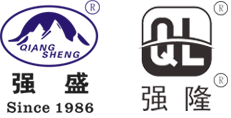
 English
English 简体中文
简体中文
 Chinese
Chinese English
English
